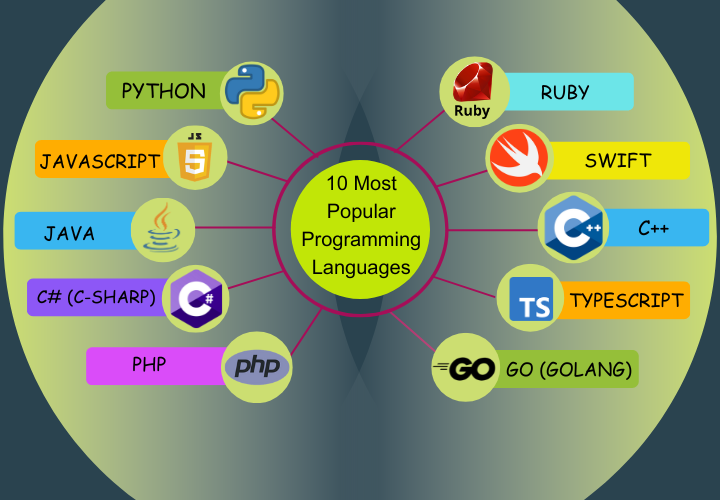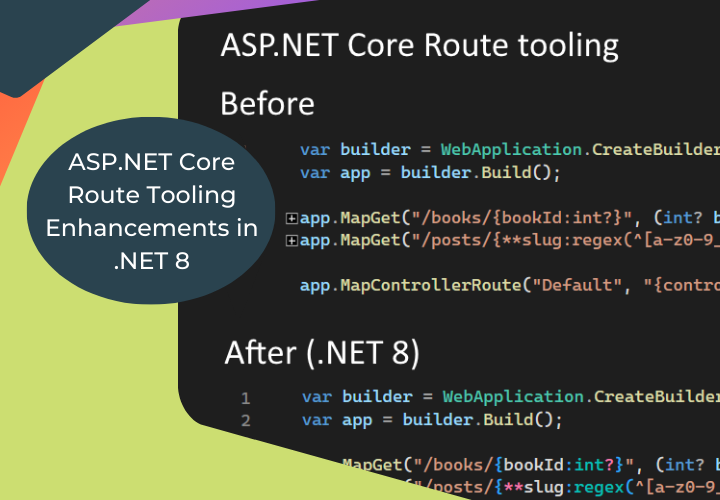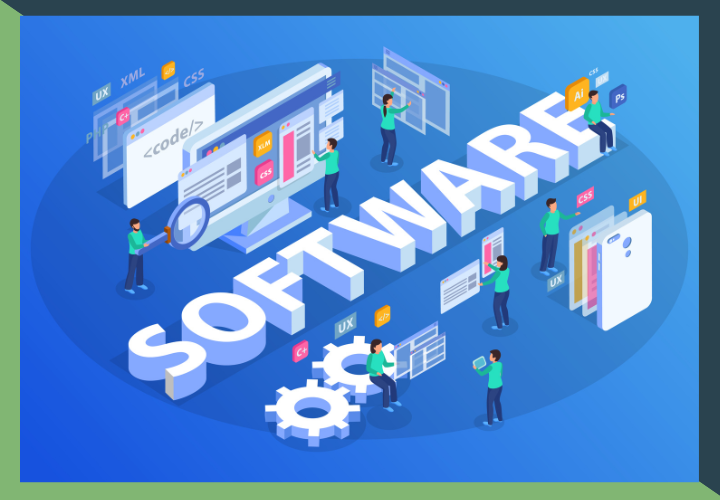
Within the ever-evolving realm of technology, programming languages are essential in determining the digital terrain. Selecting the appropriate programming language is a crucial first step, whether you want to work for a website development firm or become a website developer yourself. Before we get started, it’s helpful to remember that a few of these may also be on our list of the most beginner-friendly programming languages. You should adhere to these instructions instead if your goal is to work as a web developer and you’re wondering where to begin learning to code. Here, we will examine the top ten programming languages in this blog post, giving novices the knowledge and skills they need to successfully traverse the vast and fascinating world of coding.
Top 10 Programming Languages For Beginners That Are In High Demand:
Here, we will describe the top programming languages for beginner’s guide that are in high demand in 2023:
• Python - The Adaptable All-Rounder:
Python is one of the more accessible languages to learn and use, making it suitable for both novice and seasoned programmers. Python is well known for being easy to understand and straightforward, earning it the nickname ‘the Swiss Army knife’ among computer languages. Python is utilized in many fields, from artificial intelligence to web development, and is perfect for novices. Developers looking for rapid and effective solutions love it for its vast libraries and clear syntax.
• JavaScript - The Web’s Language:
JavaScript is a crucial part of web development that allows programmers to construct dynamic, interactive websites. JavaScript is the foundation of front-end development, working in tandem with HTML and CSS to create aesthetically pleasing user interfaces and smooth user experiences. JavaScript is necessary for functions like email loading, browser extensions, and real-time communication to work correctly and provide a good user experience.
• Java - Building Sturdy and Scalable Programs:
Java is a versatile language that is used to create sturdy and scalable programs. It is well-known for its platform independence. Java is the preferred language for creating backend systems, mobile applications (Android), and complex web applications. It is widely used in enterprise-level programming. One of the primary languages taught in educational settings is Java, which is still widely used due to its ease of use and compatibility – older programs written in Java still work properly, even with newer releases.
• C# - Microsoft’s Powerhouse:
Microsoft created C# (C Sharp), a potent programming language that’s widely used for creating web, Windows, and Unity game engine applications. For developers working in the Microsoft ecosystem, C# is the favored language due to its connection with the .NET framework. In other words, even though it lacks the cross-platform compatibility of Java, employers still find it a highly sought-after programming language because of how familiar Windows is in the workplace.
• PHP - Creating Dynamic Web Pages:
The server-side programming language PHP (Hypertext Preprocessor) makes it easier to create dynamic web pages. PHP is a popular content management system that makes it easy for developers to create feature-rich websites and applications. PHP is a popular programming language among developers due to its widespread use of scripts in various websites and ease of implementation.
• Ruby - The Stylish and Effective Option:
Prominent for its sophisticated syntax and developer-friendly methodology, Ruby prioritizes efficiency and uncomplicated use. The well-liked web framework Ruby on Rails, which is based on the Ruby language, simplifies the creation of online applications by emphasizing convention over configuration.
• Swift - Apple’s Language for iOS Development:
Swift is the programming language developed by Apple specifically for creating applications for iOS, macOS, watchOS, and tvOS. Swift has gained popularity among developers who want to develop responsive and seamless applications for the Apple ecosystem because of its safety and speed.
• C++ - Power and Performance:
System programming, game development, and resource-intensive applications frequently use C++, a high-performance language. C++ is the language of choice for developers looking to strike a balance between power and efficiency because it offers both low-level and high-level programming capabilities.
• TypeScript - Using Typing to Improve JavaScript:
Static typing is added to JavaScript by TypeScript, a superset of the latter. Microsoft created TypeScript, which improves the scalability and maintainability of code, making it an excellent option for large-scale web applications where accurate typing is essential.
• Go (Golang) - Concurrency and Simplicity:
Go, commonly referred to as Golang, is renowned for its ease of use, effectiveness, and integrated support for concurrent programming. Go, created by Google, is a favorite for cloud-based apps since it’s a great option for creating distributed, scalable systems.
In summary, starting a programming career can be exciting and intimidating, especially for individuals who want to work as website developers or contractors for a website development company. The secret is to recognize each programming language’s distinct advantages and match them to your objectives. Your decision will shape your coding journey, whether you choose the robustness of Java, the web-centric power of JavaScript, or the versatility of Python. Remember that programming is a constantly changing field, and learning a new language can lead to opportunities in the wide world of technology. So, have fun with coding!
Related Posts

ASP.NET Core Route Tooling Enhancements in .NET 8
Being ahead of the curve is crucial in the dynamic world of web development. Developers can look forward to a…

What is the impact of mobile apps on the banking industry?
With the advancement of technology, mobile applications have made banking more secure and modern. These apps are very intuitive and…

Custom Software Development – Benefits, Embracing Trends, and Best Practices for Success
In today's rapidly evolving digital landscape, businesses are harnessing the power of custom software development to drive innovation, streamline operations, and gain…
